Catherine Astolfo's Blog, page 8
November 7, 2014
Oh Jesse...
 ...I would cut fresh flowers for you; oh Jesse, I would make the wine cold for you... (unlike Carly Simon, who sang that she would not). I have never actually met Jesse Giles Christiansen, but I would certainly put out the welcome mat if he ever came to visit. As an author, his lyrical writing and his fantastical, whimsical imagination are very much admired (especially by me). As a friend, albeit a virtual one, he is unwaveringly supportive and enthusiastic. I do love Jesse's books and here's one for the Christmas season. As of this writing, I haven't had the pleasure of reading it yet, but I will soon. My advice: go get this novella, see how great the writing is, and then hop on over to his other books. Buy a few of the novellas as unique Christmas gifts! Here is the formal introduction to Jesse: Jesse Giles Christiansen is an American author who writes compelling literary fiction that weaves the real with the surreal. He attended Florida State University where he received his B.A. in English literature. He is the author of Pelican Bay, an Amazon #1 list bestseller, outselling Old Man and the Sea by Hemingway. He'll be releasing what is expected to be one of the most unique Christmas stories in years, Goth Town, on November 6th, 2014. One of Christiansen's literary goals is to write at least fifty novels, and he always reminds himself of something that Ray Bradbury once said: "You fail only if you stop writing."
...I would cut fresh flowers for you; oh Jesse, I would make the wine cold for you... (unlike Carly Simon, who sang that she would not). I have never actually met Jesse Giles Christiansen, but I would certainly put out the welcome mat if he ever came to visit. As an author, his lyrical writing and his fantastical, whimsical imagination are very much admired (especially by me). As a friend, albeit a virtual one, he is unwaveringly supportive and enthusiastic. I do love Jesse's books and here's one for the Christmas season. As of this writing, I haven't had the pleasure of reading it yet, but I will soon. My advice: go get this novella, see how great the writing is, and then hop on over to his other books. Buy a few of the novellas as unique Christmas gifts! Here is the formal introduction to Jesse: Jesse Giles Christiansen is an American author who writes compelling literary fiction that weaves the real with the surreal. He attended Florida State University where he received his B.A. in English literature. He is the author of Pelican Bay, an Amazon #1 list bestseller, outselling Old Man and the Sea by Hemingway. He'll be releasing what is expected to be one of the most unique Christmas stories in years, Goth Town, on November 6th, 2014. One of Christiansen's literary goals is to write at least fifty novels, and he always reminds himself of something that Ray Bradbury once said: "You fail only if you stop writing." You can also visit this author at www.jessegileschristiansen.com. The Kindle version is only 99¢ http://ow.ly/DRY48Paperbacks make great gifts! https://www.createspace.com/4898369Watch the trailer too! http://youtu.be/QVWYlXL5mEA
 PROLOGUE FOR GOTH TOWN,A CHRISTMAS NOVELLA
PROLOGUE FOR GOTH TOWN,A CHRISTMAS NOVELLAJAKE RAYNER is the only one, other than Samantha Bryant, who had the vision.He’ll never forget the first time it happened. He was out for a walk in the woods by himself, a practice highly discouraged by the Overseers. He was always surprised at how little everyone questioned the rules of the Overseers. Many of them seemed so ridiculous. Then again, they owed everything to them. There would have been no life here at all, if not for them. That afternoon the hazy air was happy and it seemed to seep into everything. Jake was reckless to allow it to seep into him. His feet, his legs, his fingers, even his thoughts, were reckless. I know they’re going to find me. I just know it. Then they’re going to hook me up to the Recalibration Machine again. But that day he didn’t care about a single thing. He was mad with life. Life was mad in his veins. Life was livid in his veins. Everything spoke to him. The birds’ songs were like shrilly operas stuck in fortissimo. The creek sneaking along by his side crackled and popped the way a long-asleep radio wakes up hungry and eager to play. The wind in the pines moaned softly like a lonely lover. Then it happened. He felt dizzy at first, his head so light he thought it might float away. Something surged inside him that could have been swallowed lightning, rising, writhing, and climbing up to his head. The memory came. Memories were demons; they were even more forbidden than being all alone; they were not allowed to even start. When they went in for their weekly screening, any evidence of memories prior to the Anti-Emotion Movement was immediately erased. It was for their own good. Really. They had to believe in the Overseers. They gave them everything, and asked for so little in return. The Overseers picked them up after the Great Fog. He just stood there and could not stop the memory. Oh, it was so warm. That swallowed lightning curled up, balled up in his head and took to nuclear fusion, forming a miniature sun to melt all the work of the entire Overseers’ brilliant technology. But what an afternoon it was. The first flash was of shiny boxes wrapped in fancy bows under a tree that someone had stuck in a living room. What a bizarre image. Why would someone put a perfectly good tree in a living room? Perfect madness. Perfect madness, indeed. And the poor, poor tree. The tree was wrapped with winking lights, and as he stood there, letting this memory take root, he could see the pines around him dressed the same. They were beautiful, and he overflowed with the urge to take all the pines in the forest, shrink them down, and put them into everyone’s homes. Ridiculous. Utterly ridiculous. He heard footsteps, and the beautiful, horrible, absurd memory vanished. The memory vanished like the scent of a woman riding with you on a train—a woman you know you will never see again. He waited for the Goth Town Police to arrest him. And he cherished those seconds as the taste of a curious and wild memory remained for a few seconds on his lips. Those few seconds were more blissful than the rambunctious air that crept all through the forest that afternoon and shot rays of perilous hope into everything. In those few seconds, he tried to chase the echo that was home to that taste. That scent of a woman on a train. He tried to return to it with the desperation of a legless man waking from a Boston Marathon dream.But at least the taste was there when they handcuffed him. At least the flicker. A gray haunt … at least …
Published on November 07, 2014 10:30
November 3, 2014
Genre-ish
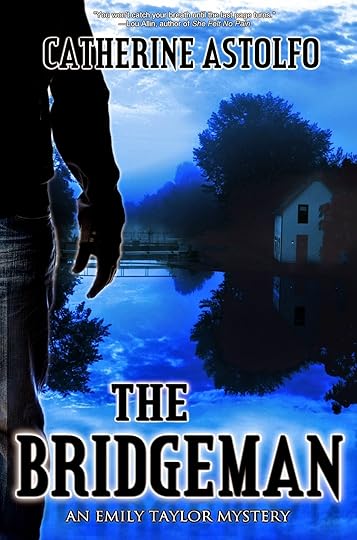 http://tinyurl.com/7rjkpblWhenever I try to slot my books into categories, I realize that I am an unapologetic rule breaker. Unapologetic because I can't seem to write any differently, so it's either quit or plow ahead. Being a rule breaker is not always a good idea. Publishers and agents and bookstores and librarians can't slot you onto a particular shelf or sell you as easily.
http://tinyurl.com/7rjkpblWhenever I try to slot my books into categories, I realize that I am an unapologetic rule breaker. Unapologetic because I can't seem to write any differently, so it's either quit or plow ahead. Being a rule breaker is not always a good idea. Publishers and agents and bookstores and librarians can't slot you onto a particular shelf or sell you as easily. Luckily for me, I have the most wonderful, risk-taking, supportive publisher - Imajin Books.
My novels might be literary, if I were not too embarrassed to say so. Embarrassed because it sounds pretentious, but also seems to imply that my novels are "about nothing".
 http://tinyurl.com/7vf42lz
http://tinyurl.com/7vf42lzMy books do appear to fit within literary agent Nathan Bransford's definition. "In literary fiction the plot usually happens beneath the surface, in the minds and hearts of the characters. Things may happen on the surface, but what is really important are the thoughts, desires, and motivations of the characters as well as the underlying social and cultural threads that act upon them." I do have plots, some pretty complex ones, but I'd have to agree that the characters rule.
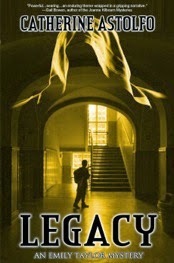 http://tinyurl.com/7m7hx2jAccording to author Anita Mason, the difference between genre and literary fiction is best described by comparing fiction to a wheel. "We can call the spokes crime fiction, science fiction, horror, what you will. The hub holds the spokes together, but their strength is in their separateness. And in the fact that they do what they do, and not something else.
http://tinyurl.com/7m7hx2jAccording to author Anita Mason, the difference between genre and literary fiction is best described by comparing fiction to a wheel. "We can call the spokes crime fiction, science fiction, horror, what you will. The hub holds the spokes together, but their strength is in their separateness. And in the fact that they do what they do, and not something else. What is in the hub? Clearly, because the spokes connect with it, it has to be a bit of everything...[or]...the possibility of everything. This is why the literary novel cannot be governed by rules. ... And it isn't easier to write something that doesn't have rules; it's harder. There's nothing to start from."
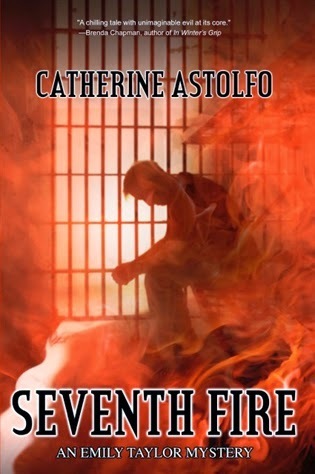 http://tinyurl.com/73gpaslIt's even more difficult to have anyone label your books literary, especially if the novels straddle the line the way mine do. Plus most readers want more direction than that. They need cues so they can decide whether or not this is a book for them. For instance, they want to know if there is a puzzle to solve. In my books, there are definitely puzzles. Thus they are mostly classed as mysteries. Readers like to know if there is romance. There are love stories, though perhaps not always classic style. There is an element of the psychological thriller (emphasizing the psychology of the characters and their emotional states) in most of them.
http://tinyurl.com/73gpaslIt's even more difficult to have anyone label your books literary, especially if the novels straddle the line the way mine do. Plus most readers want more direction than that. They need cues so they can decide whether or not this is a book for them. For instance, they want to know if there is a puzzle to solve. In my books, there are definitely puzzles. Thus they are mostly classed as mysteries. Readers like to know if there is romance. There are love stories, though perhaps not always classic style. There is an element of the psychological thriller (emphasizing the psychology of the characters and their emotional states) in most of them.So I do like to warn readers. Or entice them, maybe. Personally I like reading books that don't follow the rules. I don't like the predictable. Which is probably part of the reason I write like that. I want my readers to know that they are in for a roller coaster ride that will sometimes go off the rails or take them into unknown, frightening territory. My endings are usually filled with hope and justice and love—but not always. However, if you like thoughtful writing, deep characters, and twists and spills, my books are for you.
Now you are prepared! My novels are included in both a Mystery/Crime anthology and a Romance anthology. The Deadly Dozen has all kinds of crime sub-genres included, while Sweet & Sensual has romance and its sub-genres.
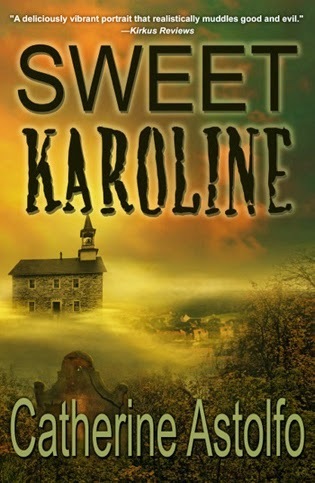 http://bookShow.me/B00DUIDMKOThe Bridgeman (the Emily Taylor novel in DD) is a dark tale about the masks some people wear and the evil that lurks in the mundane. Psychological thriller literary mystery might be its reader cues.
http://bookShow.me/B00DUIDMKOThe Bridgeman (the Emily Taylor novel in DD) is a dark tale about the masks some people wear and the evil that lurks in the mundane. Psychological thriller literary mystery might be its reader cues. Sweet Karoline is not really sweet, but it does have some heart-warming elements. Not to mention sensual, both in the standard way and in its setting. Romance? Definitely there, but I'd have to qualify it as a non-traditional, doesn't-follow-all-the-rules kind. Sweet Karoline might be classed as a psychological thriller historical romance literary mystery.
I may not be able to promise to follow the rules. But I do promise a compelling, challenging, mesmerizing read.

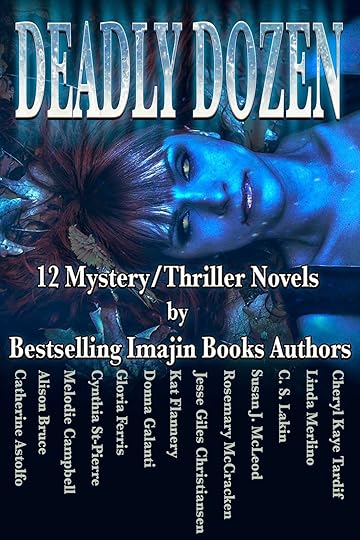
http://getBook.at/deadlydozen
http://getbook.at/sweetsensual
Published on November 03, 2014 11:32
October 19, 2014
Merci
Merci and I met on a rainy spring evening 38 years ago. We'd attended the first session of a fabulous writers' course. Unbeknownst to us, that course would change our lives. At the end of the workshop, Merci walked quickly and determinedly toward a bus stop, stood in the rain. So I picked her up and drove her home. On that short ride, we discovered we were kindred spirits.
That ride led to my picking her up and driving her home each week. Not because I was being especially kind, but because I loved her at "hello".
That course, those rides, led to ten years' worth of the Brampton Writers Workshop, followed by years of only four original members, Edie Van Beek, Michelle Duff, Merci, and me. Next came the MCM group—Merci, Cathy & Michelle—keeping the fires going when we could. Keeping the friendship, despite all the enormous changes in our lives.
Twenty years my senior, Merci was always a late bloomer. She'd married late, had her two sons at an older-than-average age, began to write poetry in her forties. She was thin and grey-haired and, due to a rather long nose and pixie-shaped face, looked very conservative, perhaps even severe. You had to look into the shine of her eyes to notice the twinkle. Merci was a wild child, tamed by life and circumstance, but she retained a wicked laugh, a dark streak, an energetic impulse for love and excitement.
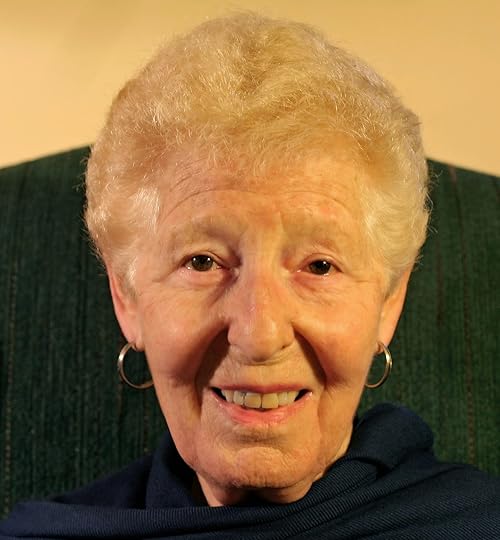
In the late seventies and early eighties, we were fortunate enough to be part of the Great Canadian Poetry weekends. It was a trip we looked forward to every single year. From our drive there to our journey home, we talked, laughed, learned, wrote, planned. Our years flowed from there. Sometimes the paths didn't go straight, but we'd shoulder our backpacks and continue on with optimism, flare.
Once we learned we could read at the Poetry Weekend, a kind of karaoke for writers, we began to believe in our creativity. We saw a future. Dennis Lee came up to Merci after one of these readings and complimented her poetry.
Before she left our room that afternoon to do the reading, I had had to tell her that her name tag was upside down. We both collapsed on the beds in fits of laughter.
George Jones, P.K. Page, Irving Layton, bp Nichol, Margaret Atwood, bill bissett, George Bowering, John Robert Columbo, Patrick Lane, Susan Musgrave, James Reany, Miriam Waddington, Don Coles, Dorothy Livesay, Al Purdy, Dennis Lee, Pier Giorgio Di Cicco...they were all our teachers in Collingwood. We promised each other we'd never allow one of us to read in a sleeveless blouse as Livesay did, her underarms jiggling distractedly in the backlit room.
From then on, we always make sure each other's name tag is right-side-up.
We are there for each other through ups and downs, tragedies and joys, wins and losses. Merci's son Charles dies in a terrible car accident at sixteen years of age. She is crushed, holds up only for her eldest son, Chris. Her husband's moods and problems multiply, divide, settle. The loss of two children can do that to a person and Claude doesn't know how to suffer, how to handle it.
Merci is a nurse and is working in the hospital when I give birth to my son. We ride side-by-side through divorce (mine), remarriage (mine), menopause, children's learning curves, the death of a spouse (hers), writing, publishing, sex, the bones of life and love.
We run our Brampton Writers' workshop until its death, attend courses and conferences and authors' festivals. We publish. Our own magazine with Edie and Michelle, in others' magazines, in our own books. She gives me feedback, encouragement, even plot ideas. With my and Michelle's help, she publishes her own poetry book, an achievement accomplished at 80 years old.
Our writing helps us understand our lives, the choices that led us here or there. Merci realizes she was an abused child, but she chooses not to confront the man, the boy, who did it. Adopted, she was an un-pretty baby chosen to replace a beautiful child, a perfect angel impossible to imitate. She and her adoptive mother become close in older age, but Merci was rejected by her birth mother both in infancy and later when she tries to reconnect. Yet she retains her strength, her determination, her energy.
When she moves a long distance away, we spend months without face-to-face. On the phone, we can hear the love in our voices. We kiss from a distance. Just this week, I hear her lovely lilting English accent as she says, "Oh, Cathy" and rushes into the news of the day. I can't believe she leaves me a few days later.
Looking back to catch the coincidences often results in comfort. Merci laughed over my new, lighter book, more cozy than I'd ever before written, and agreed to have her birth name used for one of the characters. She gave me two excellent plots for short stories, one of which is now published. The other is ready for submission. I have a plan for Victim, Emily Taylor Book Two, which contains Merci's poetry.
I unwrap the collection of poetry she gave me some time ago. Some written by hand, others typed on that old-fashioned instrument, the typewriter. I have plans for these poems, too. I wear the bracelet she gave me last year to my niece's wedding. On the day that I lose her, I gain a nephew. How odd life is sometimes.
I imagine that Merci is talking to Charles right now, getting caught up. It's his time with her.
But who will make sure my name tag is right-side up?
That ride led to my picking her up and driving her home each week. Not because I was being especially kind, but because I loved her at "hello".
That course, those rides, led to ten years' worth of the Brampton Writers Workshop, followed by years of only four original members, Edie Van Beek, Michelle Duff, Merci, and me. Next came the MCM group—Merci, Cathy & Michelle—keeping the fires going when we could. Keeping the friendship, despite all the enormous changes in our lives.
Twenty years my senior, Merci was always a late bloomer. She'd married late, had her two sons at an older-than-average age, began to write poetry in her forties. She was thin and grey-haired and, due to a rather long nose and pixie-shaped face, looked very conservative, perhaps even severe. You had to look into the shine of her eyes to notice the twinkle. Merci was a wild child, tamed by life and circumstance, but she retained a wicked laugh, a dark streak, an energetic impulse for love and excitement.

In the late seventies and early eighties, we were fortunate enough to be part of the Great Canadian Poetry weekends. It was a trip we looked forward to every single year. From our drive there to our journey home, we talked, laughed, learned, wrote, planned. Our years flowed from there. Sometimes the paths didn't go straight, but we'd shoulder our backpacks and continue on with optimism, flare.
Once we learned we could read at the Poetry Weekend, a kind of karaoke for writers, we began to believe in our creativity. We saw a future. Dennis Lee came up to Merci after one of these readings and complimented her poetry.
Before she left our room that afternoon to do the reading, I had had to tell her that her name tag was upside down. We both collapsed on the beds in fits of laughter.
George Jones, P.K. Page, Irving Layton, bp Nichol, Margaret Atwood, bill bissett, George Bowering, John Robert Columbo, Patrick Lane, Susan Musgrave, James Reany, Miriam Waddington, Don Coles, Dorothy Livesay, Al Purdy, Dennis Lee, Pier Giorgio Di Cicco...they were all our teachers in Collingwood. We promised each other we'd never allow one of us to read in a sleeveless blouse as Livesay did, her underarms jiggling distractedly in the backlit room.
From then on, we always make sure each other's name tag is right-side-up.
We are there for each other through ups and downs, tragedies and joys, wins and losses. Merci's son Charles dies in a terrible car accident at sixteen years of age. She is crushed, holds up only for her eldest son, Chris. Her husband's moods and problems multiply, divide, settle. The loss of two children can do that to a person and Claude doesn't know how to suffer, how to handle it.
Merci is a nurse and is working in the hospital when I give birth to my son. We ride side-by-side through divorce (mine), remarriage (mine), menopause, children's learning curves, the death of a spouse (hers), writing, publishing, sex, the bones of life and love.
We run our Brampton Writers' workshop until its death, attend courses and conferences and authors' festivals. We publish. Our own magazine with Edie and Michelle, in others' magazines, in our own books. She gives me feedback, encouragement, even plot ideas. With my and Michelle's help, she publishes her own poetry book, an achievement accomplished at 80 years old.
Our writing helps us understand our lives, the choices that led us here or there. Merci realizes she was an abused child, but she chooses not to confront the man, the boy, who did it. Adopted, she was an un-pretty baby chosen to replace a beautiful child, a perfect angel impossible to imitate. She and her adoptive mother become close in older age, but Merci was rejected by her birth mother both in infancy and later when she tries to reconnect. Yet she retains her strength, her determination, her energy.
When she moves a long distance away, we spend months without face-to-face. On the phone, we can hear the love in our voices. We kiss from a distance. Just this week, I hear her lovely lilting English accent as she says, "Oh, Cathy" and rushes into the news of the day. I can't believe she leaves me a few days later.
Looking back to catch the coincidences often results in comfort. Merci laughed over my new, lighter book, more cozy than I'd ever before written, and agreed to have her birth name used for one of the characters. She gave me two excellent plots for short stories, one of which is now published. The other is ready for submission. I have a plan for Victim, Emily Taylor Book Two, which contains Merci's poetry.
I unwrap the collection of poetry she gave me some time ago. Some written by hand, others typed on that old-fashioned instrument, the typewriter. I have plans for these poems, too. I wear the bracelet she gave me last year to my niece's wedding. On the day that I lose her, I gain a nephew. How odd life is sometimes.
I imagine that Merci is talking to Charles right now, getting caught up. It's his time with her.
But who will make sure my name tag is right-side up?
Published on October 19, 2014 09:08
September 8, 2014
Why schools and book clubs should read the Metatron series.
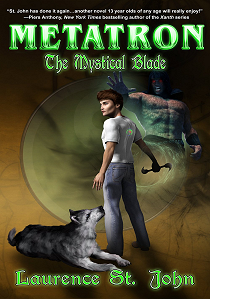 http://ow.ly/Aq6zU
http://ow.ly/Aq6zUAs a retired teacher/school principal, I was always looking for a series that would appeal, especially, to boys who were reluctant readers. I'm sure you, as parents or educators, are still doing the same. The action in the Metatron novels will keep those reluctant readers riveted!
Here are all the details from the author himself, Laurence St. John.
Cathy
The METATRON series consists of teen/young adult fantasy novels that are action packed without any vulgar language or bloodshed. Even though the target audience is boys ages 7 – 14, kids of all ages will relate to the stories. In addition to kids, adults will enjoy the stories – just read the reviews!
Question: What is the first teen/ya fantasy novel that pops in your head?
Get METATRON: THE MYSTICAL BLADE for only $3.99! http://ow.ly/Aq6zU
Enter a chance to win an ebook or $120.00 Amazon Gift Card – click on link
http://www.rafflecopter.com/rafl/display/04f1211/
If you have a chance, I would be grateful if you could write a Customer Review. It should only take a few minutes of your time - Thank-you.
Laurence
One ruthless demon faces one relentless teenager…
Thirteen-year-old Tyler Thompson is on the verge of becoming a superhero, but he must prove himself so he can earn the remainder of his superpowers and fulfill his destiny.
When his grandfather, Benjamin, is held prisoner at AREA 51, where the eternal powers are presumed to be hidden, Tyler attempts to penetrate the base’s heavy security. However, Dr. Mason Payne, the evil scientist who killed Tyler's father, has insidious plans of his own.
Hunted by an unknown entity, Tyler races against the clock to retrieve the superpowers, rescue his family and help the others who are depending on him. And when all hope seems lost, help comes in a power he didn’t know he possessed—a mysterious weapon known as The Mystical Blade.
A little about Laurence (in his own words)

While working in the steel industry, my place of employment changed hands for the third time. Fortunately I was able to retain my job.
In the same year my first granddaughter Kendall was born. This was one of the most uplifting moments of my life. It was at this time when I became inspired as well as determined to write my penned-up thoughts on paper.
A few years later, and many hours of writing, editing, revising and re-editing, it was finished. This journey had many bumps and curves in the road but at the end, it was all worth it.
Connect with Laurence here:
Website: http://www.laurencestjohn.com
Blog: http://laurencestjohn.blogspot.com/
Twitter: http://twitter.com/laurencestjohn
Facebook: http://www.facebook.com/laurenceastjohn
LinkedIn: http://www.linkedin.com/pub/laurence-st-john/42/437/883
Goodreads: http://www.goodreads.com/laurencestjohn
Amazon Author: http://www.amazon.com/Laurence-St.-John/e/B007XFYJRU
Published on September 08, 2014 05:14
July 28, 2014
Writing Process Blog Tour - A Week Late!
A while ago, I was invited by Phyllis Humby to participate in a writers' process blog tour. ONE WEEK AGO, I should have uploaded this blog post.
I met Phyllis by mail and email when she entered the Bony Pete Contest.
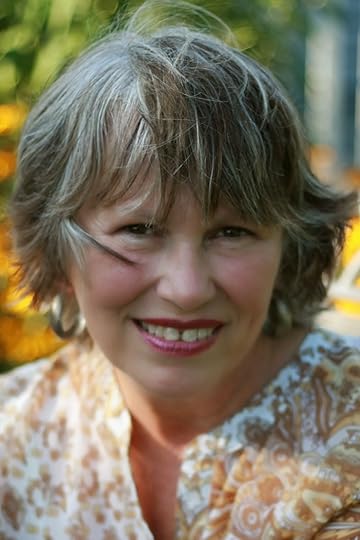
I met Phyllis in person at the Bloody Words Conference 2014 when I had the privilege of giving her the Bony Pete Award! She is personable, enthusiastic, supportive and fun - and obviously, a terrific writer.
You can visit her here:
The Write Break phyllishumby.blogspot.com
and facebook.com/TheWriteBreak
When Phyllis asked me to do this, I was in the midst of moving from the house we've lived in for over 25 years, but I'm superwoman, right? I'll remember, right?
1. How does your writing process work?

Obviously, not very well. Here I am, seven whole days late. Though right now I can blame moving on the loss of much of my brain power, including short term memory. In May we put our house up for sale, sold it, and bought another one in another city. That's my exciting news! Now we are packing and packing and packing. I thought I'd purged, but...this is definitely not the exciting part, I must say.
Anyway, on to my usual writing process. When I pick up an idea, it takes over my thoughts. Haunts me. Runs back and forth like one of those song refrains that you can't get rid of. The idea can hit because of a newspaper item, a rumor, a real life story, a song, a visual experience - okay, from almost anywhere or anyone. The idea can be centred on a plot or a character or a setting. I have to write down the idea these days so I don't forget (even when I'm not relocating).
Later, I play with the idea to see if it fits into a longer piece. Short story? Novella? Novel? I love all the forms and allow the plot, character or setting to rule the length. I do the research, sketch out a plan, and off I go. The outline is a living thing for me - changing as it grows.
However, I am a binge writer. I'll write for hours, then for days, sometimes for weeks - and then I'll be dry for the same amount of time. One of these days I am going to acquire self discipline.
2. Why do you write what you write?
I am somewhat like Phyllis, in that I write what I read. I love dark mysteries, the Gillian Flynn or P. D. James or Minette Walters kind - the sort that includes inner demons and psychopaths. Some of my readers think I must have suffered a traumatic experience in my earlier life and I say yes, I became an elementary school teacher.
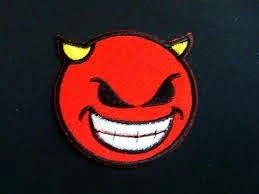 Honestly, I have always been interested in the psychology of evil. I love writing about it, exploring the phenomenon. In this way I have total control over the outcome. The bad ones always get their just desserts (OK, almost always) and justice is (usually) served, or at least there is love and hope at the end.
Honestly, I have always been interested in the psychology of evil. I love writing about it, exploring the phenomenon. In this way I have total control over the outcome. The bad ones always get their just desserts (OK, almost always) and justice is (usually) served, or at least there is love and hope at the end.
3. How does my work differ from others in my genre?
My books are not traditional mysteries. They weave in and out, closer to "literary" or "general" fiction, then back to somewhat thriller-ish with a dash of horror. What I mean by literary/general is that my stories are more character-driven than most mysteries. My characters get caught up in a social justice issue, or a personal journey, that leads them to a crime. My novels are certainly not of the Agatha Christie mode or anything like a cozy. (When conference organizers see my picture (middle aged plump smiling white lady), they often place me on cozy panels.) I call them mighty meaty mysteries, because I like to include moral messages and social justice issues and some pretty scary stuff that I often have picked out of the news. Yet by the end, I hope the reader is uplifted (or shocked).
4. What Am I Working On?
Currently I have ADD - Author Distracted Disorder. Here are the items on my desktop: An adult novel that is - wait for it! - a cozy mystery. A YA mystery novel with a dash of fantasy for young adults from 15 years old. A short story. A screenplay of my book, Seventh Fire. That's all.
All right - off I go to find another author who will continue this wonderful tour by writing a last minute blog. I promise to introduce you to him/her as soon as I find him/her.
You can find all my books and short stories on my website: www.catherineastolfo.com
I met Phyllis by mail and email when she entered the Bony Pete Contest.

I met Phyllis in person at the Bloody Words Conference 2014 when I had the privilege of giving her the Bony Pete Award! She is personable, enthusiastic, supportive and fun - and obviously, a terrific writer.
You can visit her here:
The Write Break phyllishumby.blogspot.com
and facebook.com/TheWriteBreak
When Phyllis asked me to do this, I was in the midst of moving from the house we've lived in for over 25 years, but I'm superwoman, right? I'll remember, right?
1. How does your writing process work?

Obviously, not very well. Here I am, seven whole days late. Though right now I can blame moving on the loss of much of my brain power, including short term memory. In May we put our house up for sale, sold it, and bought another one in another city. That's my exciting news! Now we are packing and packing and packing. I thought I'd purged, but...this is definitely not the exciting part, I must say.
Anyway, on to my usual writing process. When I pick up an idea, it takes over my thoughts. Haunts me. Runs back and forth like one of those song refrains that you can't get rid of. The idea can hit because of a newspaper item, a rumor, a real life story, a song, a visual experience - okay, from almost anywhere or anyone. The idea can be centred on a plot or a character or a setting. I have to write down the idea these days so I don't forget (even when I'm not relocating).
Later, I play with the idea to see if it fits into a longer piece. Short story? Novella? Novel? I love all the forms and allow the plot, character or setting to rule the length. I do the research, sketch out a plan, and off I go. The outline is a living thing for me - changing as it grows.
However, I am a binge writer. I'll write for hours, then for days, sometimes for weeks - and then I'll be dry for the same amount of time. One of these days I am going to acquire self discipline.
2. Why do you write what you write?
I am somewhat like Phyllis, in that I write what I read. I love dark mysteries, the Gillian Flynn or P. D. James or Minette Walters kind - the sort that includes inner demons and psychopaths. Some of my readers think I must have suffered a traumatic experience in my earlier life and I say yes, I became an elementary school teacher.
 Honestly, I have always been interested in the psychology of evil. I love writing about it, exploring the phenomenon. In this way I have total control over the outcome. The bad ones always get their just desserts (OK, almost always) and justice is (usually) served, or at least there is love and hope at the end.
Honestly, I have always been interested in the psychology of evil. I love writing about it, exploring the phenomenon. In this way I have total control over the outcome. The bad ones always get their just desserts (OK, almost always) and justice is (usually) served, or at least there is love and hope at the end.3. How does my work differ from others in my genre?
My books are not traditional mysteries. They weave in and out, closer to "literary" or "general" fiction, then back to somewhat thriller-ish with a dash of horror. What I mean by literary/general is that my stories are more character-driven than most mysteries. My characters get caught up in a social justice issue, or a personal journey, that leads them to a crime. My novels are certainly not of the Agatha Christie mode or anything like a cozy. (When conference organizers see my picture (middle aged plump smiling white lady), they often place me on cozy panels.) I call them mighty meaty mysteries, because I like to include moral messages and social justice issues and some pretty scary stuff that I often have picked out of the news. Yet by the end, I hope the reader is uplifted (or shocked).
4. What Am I Working On?
Currently I have ADD - Author Distracted Disorder. Here are the items on my desktop: An adult novel that is - wait for it! - a cozy mystery. A YA mystery novel with a dash of fantasy for young adults from 15 years old. A short story. A screenplay of my book, Seventh Fire. That's all.
All right - off I go to find another author who will continue this wonderful tour by writing a last minute blog. I promise to introduce you to him/her as soon as I find him/her.
You can find all my books and short stories on my website: www.catherineastolfo.com
Published on July 28, 2014 07:51
July 17, 2014
Atychiphobia or Jonah Complex? Me?
Part One - Atychiphobia
During my publisher's latest promotion, I began to realize that I was clenching my teeth, picking at my nails and pulling my hair even as I cheerfully followed instructions re the fabulous marketing ideas. I suddenly acknowledged that I was not having fun. That I had a deep-seated aversion to bragging about myself to the world.

Although I love my own books, am proud as a peacock that I wrote them, adore my publisher - I wasn't enjoying the promos. Why not?
I decided to look up inspirational talks about success and discovered not one, but two, syndromes from which I may be suffering. I just have to decide which one. As they say, acceptance is the first step to recovery.
First, I investigate the most popular ailment. Perhaps I have acquired Atychiphobia, commonly known as the fear of failure. According to Mind Tools, there are four main signs of atychiphobia.
1. "A reluctance to try new things or get involved in challenging projects." I don't think I have this symptom. I'm usually very excited about new marketing ideas. It's the actual work of the project that gets me nervous. As I'm tweeting and facebooking, I am convinced no one is really listening. I am talking to myself. Despite the lovely retweets, follows, Likes, purchases, and direct messages, I still feel completely alone. Probably because I am. Alone, that is, here is my office, unable to see the audience or hear any applause.
Strike symptom 1.
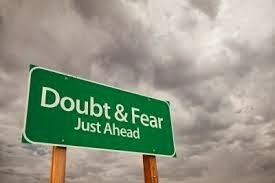 2. "Self-sabotage – for example, procrastination, excessive anxiety, or a failure to follow through with goals." Hmmm. I like things done way ahead of schedule where possible. So, no procrastination signs. Excessive anxiety - well, my nervousness doesn't stop me from carrying through with the assignment or goals or tasks - so, scratch excessive. Failure to follow through - nope, I follow through. I get it done. I just don't enjoy it. I feel frustrated and depressed, not before, but during and after the promo.
2. "Self-sabotage – for example, procrastination, excessive anxiety, or a failure to follow through with goals." Hmmm. I like things done way ahead of schedule where possible. So, no procrastination signs. Excessive anxiety - well, my nervousness doesn't stop me from carrying through with the assignment or goals or tasks - so, scratch excessive. Failure to follow through - nope, I follow through. I get it done. I just don't enjoy it. I feel frustrated and depressed, not before, but during and after the promo.
Scratch symptom 2.
3. "Low self-esteem or self-confidence – Commonly using negative statements such as 'I'll never be good enough to get that promotion,' or 'I'm not smart enough to get on that team'." I might have to cop to this one. I do tend to suffer from shyness and a lack of confidence. But as anyone will tell you, most people don't notice. They would probably argue with me. They don't see my shaking knees or the ache of my jaw. I plunge into everything despite the lack of confidence. Although it's always with me, I employ techniques for appearing comfortable and confident: big smile, firm handshake, deep breaths, written speeches.
Symptom 3 - only half.
4. "Perfectionism – A willingness to try only those things that you know you'll finish perfectly and successfully." Oh, I have to admit to this one. I rarely tackle anything unless I'm pretty sure I'll be a huge success at the skill or task. Maybe this explains the post-promo depression (I'm coining it as PPD). Afterward, the results are never what I think I should have accomplished! I berate myself for not being number one. For not surpassing Sara Paretsky or Louise Penny. Aha! I have this symptom for sure!
 Symptom 4 - I own this! I am perfect at it.
Symptom 4 - I own this! I am perfect at it.
However, since I only have one and a half of the symptoms of a fear of failure, do I really have atychiphobia? Perhaps not. Perhaps I have Jonah Complex. On to the next set of research!
BTW: ImajinBook's Summer Sizzle promotion, sale and contest can be found right here, until July 20 : http://www.imajinbooks.com/contests-events
PS Some promoters I admire who seem to thoroughly enjoy doing it (so much so, they make it their profession). Check them out when you get a chance, especially if you are an author with atychiphobia - they'll take over for you.
Rebecca Dahlke runs Dirt Cheap Mystery Reads: allmysteryenewsletter.com
Michael Gallagher runs Kindle Books and Tips: http://www.fkbooksandtips.com/
During my publisher's latest promotion, I began to realize that I was clenching my teeth, picking at my nails and pulling my hair even as I cheerfully followed instructions re the fabulous marketing ideas. I suddenly acknowledged that I was not having fun. That I had a deep-seated aversion to bragging about myself to the world.

Although I love my own books, am proud as a peacock that I wrote them, adore my publisher - I wasn't enjoying the promos. Why not?
I decided to look up inspirational talks about success and discovered not one, but two, syndromes from which I may be suffering. I just have to decide which one. As they say, acceptance is the first step to recovery.
First, I investigate the most popular ailment. Perhaps I have acquired Atychiphobia, commonly known as the fear of failure. According to Mind Tools, there are four main signs of atychiphobia.
1. "A reluctance to try new things or get involved in challenging projects." I don't think I have this symptom. I'm usually very excited about new marketing ideas. It's the actual work of the project that gets me nervous. As I'm tweeting and facebooking, I am convinced no one is really listening. I am talking to myself. Despite the lovely retweets, follows, Likes, purchases, and direct messages, I still feel completely alone. Probably because I am. Alone, that is, here is my office, unable to see the audience or hear any applause.
Strike symptom 1.
 2. "Self-sabotage – for example, procrastination, excessive anxiety, or a failure to follow through with goals." Hmmm. I like things done way ahead of schedule where possible. So, no procrastination signs. Excessive anxiety - well, my nervousness doesn't stop me from carrying through with the assignment or goals or tasks - so, scratch excessive. Failure to follow through - nope, I follow through. I get it done. I just don't enjoy it. I feel frustrated and depressed, not before, but during and after the promo.
2. "Self-sabotage – for example, procrastination, excessive anxiety, or a failure to follow through with goals." Hmmm. I like things done way ahead of schedule where possible. So, no procrastination signs. Excessive anxiety - well, my nervousness doesn't stop me from carrying through with the assignment or goals or tasks - so, scratch excessive. Failure to follow through - nope, I follow through. I get it done. I just don't enjoy it. I feel frustrated and depressed, not before, but during and after the promo.Scratch symptom 2.
3. "Low self-esteem or self-confidence – Commonly using negative statements such as 'I'll never be good enough to get that promotion,' or 'I'm not smart enough to get on that team'." I might have to cop to this one. I do tend to suffer from shyness and a lack of confidence. But as anyone will tell you, most people don't notice. They would probably argue with me. They don't see my shaking knees or the ache of my jaw. I plunge into everything despite the lack of confidence. Although it's always with me, I employ techniques for appearing comfortable and confident: big smile, firm handshake, deep breaths, written speeches.
Symptom 3 - only half.
4. "Perfectionism – A willingness to try only those things that you know you'll finish perfectly and successfully." Oh, I have to admit to this one. I rarely tackle anything unless I'm pretty sure I'll be a huge success at the skill or task. Maybe this explains the post-promo depression (I'm coining it as PPD). Afterward, the results are never what I think I should have accomplished! I berate myself for not being number one. For not surpassing Sara Paretsky or Louise Penny. Aha! I have this symptom for sure!
 Symptom 4 - I own this! I am perfect at it.
Symptom 4 - I own this! I am perfect at it.However, since I only have one and a half of the symptoms of a fear of failure, do I really have atychiphobia? Perhaps not. Perhaps I have Jonah Complex. On to the next set of research!
BTW: ImajinBook's Summer Sizzle promotion, sale and contest can be found right here, until July 20 : http://www.imajinbooks.com/contests-events
PS Some promoters I admire who seem to thoroughly enjoy doing it (so much so, they make it their profession). Check them out when you get a chance, especially if you are an author with atychiphobia - they'll take over for you.
Rebecca Dahlke runs Dirt Cheap Mystery Reads: allmysteryenewsletter.com
Michael Gallagher runs Kindle Books and Tips: http://www.fkbooksandtips.com/
Published on July 17, 2014 07:56
June 18, 2014
On the Journal: Part 3
 At 5 a.m., the aviary choir runs through its note lines, high and squawky or melodic. Most people are still asleep, thus the usual swish of traffic is a faint whisper in the distance. Although I am not really pleased at being awake at this time, I decide it's a good time concentrate on the journal I've been meaning to write.
At 5 a.m., the aviary choir runs through its note lines, high and squawky or melodic. Most people are still asleep, thus the usual swish of traffic is a faint whisper in the distance. Although I am not really pleased at being awake at this time, I decide it's a good time concentrate on the journal I've been meaning to write.Prior to this gift of a quiet couple of hours, I attempted several times to pen my magnificent, insightful thoughts on life, love, art, history, philosophy. I always leave out geography and science and mathematics and not because I am so good at them I'd shame the rest of the world.
Love I figure I could wax prosaic about simply due to the numerous times I've been mired in it.
Above is an example of how I get distracted. I begin to research journal writing. I preach. I switch from pencil to pen to laptop. I make a plan. I never actually get to the diary itself.
Several days, I am interrupted by house showings. We have our home up for sale and it's not doing well. Everyone else I know sold their place in under a day. Not us. We like to wait until the market cools, then obsessively clean every day, and hop in the car and wait down the street while potential buyers stroll through. Voyeurs in our own neighbourhood. You'd think that would be a good time to journal, but with the stress of removing the last possible piece of dust and jamming the cat into her carrier, I barely remember my shoes let alone a diary.

When I do have time and still nothing flows from my fingertips, I glance back at old journals for inspiration. Here’s an example of an old travel diary: “Eilat. Amazing topography. Dinner at Pago Pago. ‘Wasaga Beach - even a ferris wheel’. Swim, Sun.” Isn’t that descriptive? Not for you, I’m sure, but it’s strange how these few words immediately bring back the trip.
I smell the azure sea, blink at the reddish sand, wonder at the luxury of the hotels. Pago Pago smells of fish and salt from its open windows, a long wide wooden deck of a restaurant. Strolling in the warm night, hand-in-hand with my husband, we wander through a fair and I transpose back to childhood playing with my cousins and my sisters at Wasaga Beach. The fair a weekly treat. We have lots of time to swim in the pools and loll in the sun on this trip.
Another journal does the same for me. “On top of hill - Israel, Saudi, Egypt, Jordan. Egyptian soldiers at breakfast. Nuweiba - famous Bedouin group. Coloured canyon. Dahab means gold; city is yellow.” From high above, I can see the vast scrubby desert undulate in all directions. Turn in a circle and you can see four countries, our guide tells, so we do. Each of them burns in my memory. I am amazed, aghast, frightened by the beauty of the land and the ferocity of human beings. How can we as a species hold so much anger and greed when we have this vastness, this sandy parchment, these green oases at our feet? Naively I gaze at the Egyptian soldiers on the other side of the barbwire fence, calmly eating their breakfast, smile and talk and occasionally touch the assault rifles by their sides. Once in the Sinai Peninsula, we hear that there is trouble in Sharm El Sheikh, so we won’t go that far. Its history is rich and terrifying. In 6000 BC, it was broken off into Bedouin, Greek and Roman sections. The latter of course attempted to force a “christian” conversion on all, resulting in years of battle, death, destruction.
We pass by the port town of Nuweiba, famous for its Bedouin camps, but we see only rocky hills and pebbled dirt. We have a guide, a driver, and an armed police officer with us, because even tourists are subject to the violence this year. The city of Dahab is a yellow bulb on the dirty brown landscape. Its name means “gold”.
This is what I get from one page in my diary. We don’t reach the city of St. Catherine’s and Mount Sinai until the next entry. So naturally I begin to think.
Perhaps, at least right now, at this age, I don’t need to write in detail. Maybe point form is fine. After years of typewriters (I can hear my granddaughter asking, Gramma, what’s a typewriter?) and computers, writing with a pen is slow, visceral. No thesaurus is a click away.
I like the idea of jotting. It’s quick, yet not easy: I’ll have to pick the right words that will trigger the memory to return. Yet obviously the name of a city, the timetable of our day, can evoke the trip we took. Perhaps that will work for day-to-day stuff too. I know I like making lists. This would be kind of a life list. Short, but to the point.
PS Post blog - sold house.
Published on June 18, 2014 05:44
May 25, 2014
On the Journal: Part 2
According to a bunch of articles on the subject of journaling, what I have been doing is writing a diary. This is not a dictionary distinction, but one made by those who view the business of journals in a serious light.
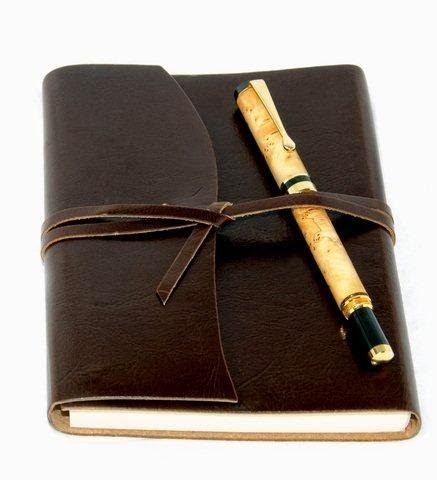 Diaries (according to Cheryl Craigie) are simply records of daily life. Like my lists, for instance. A journal, on the other hand, is “a repository for all of the things that interest and inspire you. It also provides a safe environment to experiment and grow creatively.”Wow. That kind of sounds like work to me. Something that only serious authors are allowed to create. Yet Craigie’s article claims it’s fun.Myrko Thum says the journal is a conduit for self-reflection, goal setting, and fulfilling those goals as promises to ourselves. It’s a planner, an idea repository. This sounds more like my lists. Although it appears to be easier to write than hauling a book around everywhere to jot down ideas and creative events, this kind of record seems to be even more serious minded.Speaking of serious, there are lots of online articles on journaling as therapy. For instance, many psychologists and psychiatrists employ the technique as treatment for depression, PTSD, social and medical difficulties. That totally reminds me of the blogs I wrote while undergoing treatment for breast cancer. It truly was therapeutic and even, so I was told, helped some others get through the same experience.Educators use journals for practicing of grammar and spelling skills. As a teacher, I sometimes read the journals, and sometimes the students told me it was private. In both cases, I never marked the entries, and, after a while, most of the children appeared to enjoy the process. Perhaps this is what has been missing in my personal journal experience: stick-to-itiveness.Other experts emphasize the thoughtfulness of journal writing. We take time out for ourselves. We focus on our inner reactions, emotions, and ideas that we don’t want to share aloud. It’s a sense of exerting control on our environment by examining our experiences and labeling them. A few minutes of quiet, individual deliberation tucked into a busy, loud, crowded world.
Diaries (according to Cheryl Craigie) are simply records of daily life. Like my lists, for instance. A journal, on the other hand, is “a repository for all of the things that interest and inspire you. It also provides a safe environment to experiment and grow creatively.”Wow. That kind of sounds like work to me. Something that only serious authors are allowed to create. Yet Craigie’s article claims it’s fun.Myrko Thum says the journal is a conduit for self-reflection, goal setting, and fulfilling those goals as promises to ourselves. It’s a planner, an idea repository. This sounds more like my lists. Although it appears to be easier to write than hauling a book around everywhere to jot down ideas and creative events, this kind of record seems to be even more serious minded.Speaking of serious, there are lots of online articles on journaling as therapy. For instance, many psychologists and psychiatrists employ the technique as treatment for depression, PTSD, social and medical difficulties. That totally reminds me of the blogs I wrote while undergoing treatment for breast cancer. It truly was therapeutic and even, so I was told, helped some others get through the same experience.Educators use journals for practicing of grammar and spelling skills. As a teacher, I sometimes read the journals, and sometimes the students told me it was private. In both cases, I never marked the entries, and, after a while, most of the children appeared to enjoy the process. Perhaps this is what has been missing in my personal journal experience: stick-to-itiveness.Other experts emphasize the thoughtfulness of journal writing. We take time out for ourselves. We focus on our inner reactions, emotions, and ideas that we don’t want to share aloud. It’s a sense of exerting control on our environment by examining our experiences and labeling them. A few minutes of quiet, individual deliberation tucked into a busy, loud, crowded world.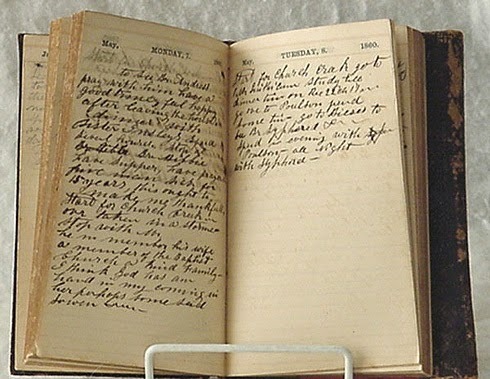 Peggy Nolan, in the Huffington Post, gives twenty-six reasons for keeping a daily journal. Some of them include accountability and reduction of stress.Personally, my stress level went up just thinking about having to write in the journal every single day. I guess that’s my aforementioned lack of self-discipline speaking, which prompts me to wonder if I ought to impose some kind of writing schedule on myself. Perhaps I’d write more than a few short stories per year and a novel every other year.
Peggy Nolan, in the Huffington Post, gives twenty-six reasons for keeping a daily journal. Some of them include accountability and reduction of stress.Personally, my stress level went up just thinking about having to write in the journal every single day. I guess that’s my aforementioned lack of self-discipline speaking, which prompts me to wonder if I ought to impose some kind of writing schedule on myself. Perhaps I’d write more than a few short stories per year and a novel every other year.Maybe I’d find peace of mind. Wikipedia calls journals “windows to the soul”. What if they’re right? I haven’t kept my window open for very long. Maybe I should change that.Phylameana lila Desy claims that the act of writing a journal “drains the brain of mindless clutter”. That is definitely something I can use. Julia Cameron in “The Artist’s Way” recommends writing every morning to clear out useless data and negative emotions so we can start our day fresh and unencumbered. Sounds like a fabulous idea to me. Probably much better than reading a newspaper filled with the terrible acts that humans commit.My brief foray into journal research has convinced me. I am going to try it—on a daily basis, not sporadically. For me, it could me an exercise in self-discipline. Want to join me? I’ll let you know how my experiment goes. Feel free to share yours! cathy@catherineastolfo.comwww.catherineastolfo.com
Published on May 25, 2014 06:22
May 18, 2014
On the Journal: Part 1
No, that wasn't an auto-correct. I did write Journal, not Journey. The two words share the root of the French "jour" meaning "day" and are therefore both based on time. According to those who should know and don't mind telling us that, we should journal daily, just as we journey along in our daily lives.
But I am terrible at journalling unless combined with a journey outside my regular sphere. A visit, a trip, a vacation, in other words, inspires me to write something down every day. Not so much when I'm home, despite the fact that I would love to be a regular journal-er.
I admire and envy those who keep a running account of their daily adventures, thoughts, ideas and observations. I wish I could make myself do it.
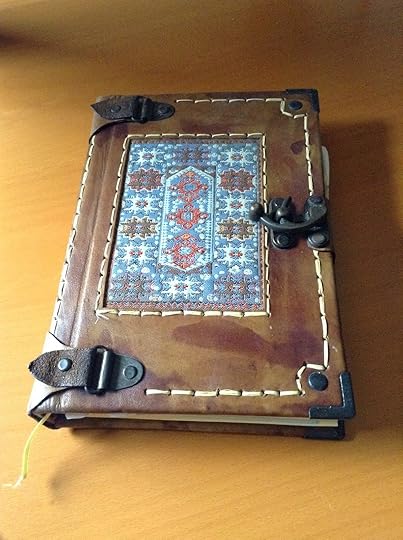 Recently I have been purging my home of "junk" after 25 years of living in the same house. I discovered a whole bunch of gorgeous little writing books with lovely covers and decorative pages. You see, although I am sporadic at writing in the journal, I adore those exquisite books. My favorite is a leather-bound journal that I bought in Turkey. That one I use to write plot outlines.
Recently I have been purging my home of "junk" after 25 years of living in the same house. I discovered a whole bunch of gorgeous little writing books with lovely covers and decorative pages. You see, although I am sporadic at writing in the journal, I adore those exquisite books. My favorite is a leather-bound journal that I bought in Turkey. That one I use to write plot outlines.
Reading over the short-lived diaries, I realize that my writing in them tends to become lists. Bucket lists. Financial lists. Shopping lists. Lists of ideas for stories. Complaint lists.
Here is one such list that I found yesterday. It's entitled "10 Things To Do Before I Die". I wrote it a whole bunch of years ago, likely around 1999, before the 2000's even existed. I'm including a little update with each one, so you know how far I got with this particular list.
10 Things to Do Before I Die (not in order of importance)
1. Visit Barbados √ Two years ago, we went with my cousin and her husband. We had a ball. It was worthy of being on the list! But now it can be replaced with some other exotic location—or a return trip to Barbados would be great too.
2. Visit Auschwitz. Dreadful, I know, but there is something that has always compelled me to go there. If I fully believed in past lives, I might suspect I'd been there in person already. But I haven't made it in this life...yet. Surprisingly, no one wants to go with me, but it's staying on the list.
3. Have a traditional publisher publish my book. √ Thanks to Cheryl Kaye Tardif of Imajin Books (www.imajinbooks.com), I can check this one off my list. By 2013, I had five published! Not to mention a bunch of short stories in "real" magazines. This item stays, however, since I have more to write.
4. Reach my ideal weight and stay there. All I can say to this is, ha ha ha ha ha ha. Still, I'll keep it on the list.
5. See Sisbro be a HUGE success. Sisbro and Co. Inc. is my children's film company. (I am a not-so-silent partner.) We haven't made a huge success yet—but there have been strides in that direction. This one stays on the list.
6. Go on a cruise. √ We went on a Mediterranean cruise last year with a bunch of our best friends. It was awesome! Glad I had that on my list. Might have to see about a couple more of those, so let's leave this here for now.
7. Return to Israel/Palestine and see Halil and Amitiée. This one hasn't been achieved—yet. It stays here. Someday I'll tell you all about these two people.
8. Get to know Vince's kids better. √ As the "other woman", it was a difficult thing to be accepted or liked by my husband's children, and I didn't blame them. But oh my god, I am grateful every single day that I can check this one off the list.
9. Learn to relax. Well, I have employed some pharmaceuticals and red wine to help with this. Seriously, however, it's not an art I have perfected by any means. Leave it on the list.
10. Learn to take care of myself and not worry so much. I think I've done a pretty good job of this one. It should probably stay on the list, though, since it's something to practice every day.
On the Journal...Cathy
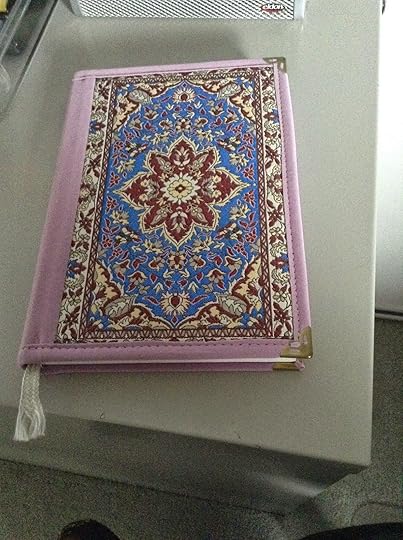
www.catherineastolfo.com
This is the purple diary in which I found my Bucket List circa 1999. I think I bought this one in Turkey, too. Should've written that down...
But I am terrible at journalling unless combined with a journey outside my regular sphere. A visit, a trip, a vacation, in other words, inspires me to write something down every day. Not so much when I'm home, despite the fact that I would love to be a regular journal-er.
I admire and envy those who keep a running account of their daily adventures, thoughts, ideas and observations. I wish I could make myself do it.
 Recently I have been purging my home of "junk" after 25 years of living in the same house. I discovered a whole bunch of gorgeous little writing books with lovely covers and decorative pages. You see, although I am sporadic at writing in the journal, I adore those exquisite books. My favorite is a leather-bound journal that I bought in Turkey. That one I use to write plot outlines.
Recently I have been purging my home of "junk" after 25 years of living in the same house. I discovered a whole bunch of gorgeous little writing books with lovely covers and decorative pages. You see, although I am sporadic at writing in the journal, I adore those exquisite books. My favorite is a leather-bound journal that I bought in Turkey. That one I use to write plot outlines.Reading over the short-lived diaries, I realize that my writing in them tends to become lists. Bucket lists. Financial lists. Shopping lists. Lists of ideas for stories. Complaint lists.
Here is one such list that I found yesterday. It's entitled "10 Things To Do Before I Die". I wrote it a whole bunch of years ago, likely around 1999, before the 2000's even existed. I'm including a little update with each one, so you know how far I got with this particular list.
10 Things to Do Before I Die (not in order of importance)
1. Visit Barbados √ Two years ago, we went with my cousin and her husband. We had a ball. It was worthy of being on the list! But now it can be replaced with some other exotic location—or a return trip to Barbados would be great too.
2. Visit Auschwitz. Dreadful, I know, but there is something that has always compelled me to go there. If I fully believed in past lives, I might suspect I'd been there in person already. But I haven't made it in this life...yet. Surprisingly, no one wants to go with me, but it's staying on the list.
3. Have a traditional publisher publish my book. √ Thanks to Cheryl Kaye Tardif of Imajin Books (www.imajinbooks.com), I can check this one off my list. By 2013, I had five published! Not to mention a bunch of short stories in "real" magazines. This item stays, however, since I have more to write.
4. Reach my ideal weight and stay there. All I can say to this is, ha ha ha ha ha ha. Still, I'll keep it on the list.
5. See Sisbro be a HUGE success. Sisbro and Co. Inc. is my children's film company. (I am a not-so-silent partner.) We haven't made a huge success yet—but there have been strides in that direction. This one stays on the list.
6. Go on a cruise. √ We went on a Mediterranean cruise last year with a bunch of our best friends. It was awesome! Glad I had that on my list. Might have to see about a couple more of those, so let's leave this here for now.
7. Return to Israel/Palestine and see Halil and Amitiée. This one hasn't been achieved—yet. It stays here. Someday I'll tell you all about these two people.
8. Get to know Vince's kids better. √ As the "other woman", it was a difficult thing to be accepted or liked by my husband's children, and I didn't blame them. But oh my god, I am grateful every single day that I can check this one off the list.
9. Learn to relax. Well, I have employed some pharmaceuticals and red wine to help with this. Seriously, however, it's not an art I have perfected by any means. Leave it on the list.
10. Learn to take care of myself and not worry so much. I think I've done a pretty good job of this one. It should probably stay on the list, though, since it's something to practice every day.
On the Journal...Cathy

www.catherineastolfo.com
This is the purple diary in which I found my Bucket List circa 1999. I think I bought this one in Turkey, too. Should've written that down...
Published on May 18, 2014 07:37
April 4, 2014
All Canadian Crime Writers: Arise and Cheer for Rob Ford!

Remember the old days when Canadians were known as "nice"? When our largest city was dubbed "Toronto the Good"? Around the world, we had the reputation of being polite, moral, upright and uptight, and well...boring. That was not a good atmosphere for us crime and mystery writers.
In fact, most successful authors had to borrow other settings. We had to portray dark American cities or explore the European underbelly if we were to sound authentic. If we did use a local setting, we often had to import a Russian or a Turk to be the bad guy. Not many readers believed in a home grown Canadian really bad thing/person.
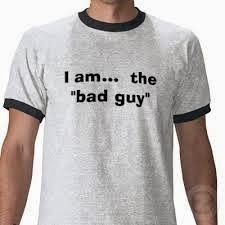
So I think we authors owe a debt of gratitude to good old Rob. Not only has he admitted to some really bad things, he's become Canada's ambassador of not-so-nice-after-all. Suddenly we have the Mayor of our Toronto the Good not only admitting to criminal acts but retaining his exalted political position at the same time. He's actually got a shot at winning the seat again. How badass is that?
 Suddenly Canada is the subject of late night US of A talk shows, international media attention, and word of mouth interest. Wow, the world is now saying, Canadians are really cool. They don't bat an eye when a mayor admits he smokes crack. What else might those not-so-nice people be up to? Other crimes perhaps? Does their blasé attitude toward Rob's misdeeds mean they're really really used to that kind of behaviour (with or without a "u")?
Suddenly Canada is the subject of late night US of A talk shows, international media attention, and word of mouth interest. Wow, the world is now saying, Canadians are really cool. They don't bat an eye when a mayor admits he smokes crack. What else might those not-so-nice people be up to? Other crimes perhaps? Does their blasé attitude toward Rob's misdeeds mean they're really really used to that kind of behaviour (with or without a "u")?
This is our chance, authors! We can point to other badass politicians (such as Mike and Pamela and Patrick). We can thank Justin, for bringing back sexy, the f-word, and pot.
If we went local, we could really wrack up the nasties, but they haven't yet garnered international attention, so we won't go there—yet. However, we can include any of the former in our crime novels because now everyone will believe us. We can set our books in Canada with impunity. We can create any number of crimes and criminals that are strictly Canadian and we'll be accepted!
Crime authors, unite.
Stand up and cheer for Rob!
Thank him for at last making Canada a great setting for homegrown fictional criminals, because now we'll have the ring of truth.
Published on April 04, 2014 06:54



